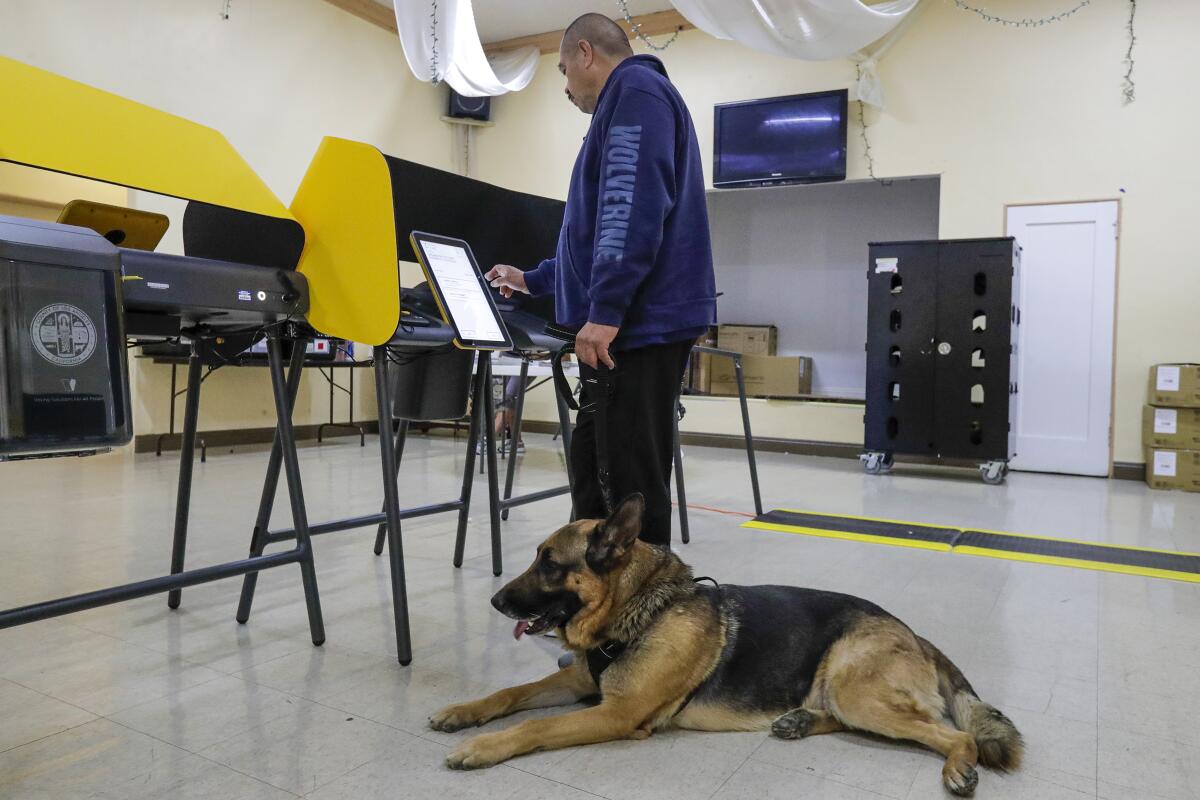Editorial: California’s independent redistricting commission is dangerously close to failing its basic task

California’s Citizens Redistricting Commission has one task, and one only: to take census data gathered every decade and draw new boundaries for state, legislative and congressional districts through a public and transparent process that’s free from political manipulation.
Simple, right? But have the 14 commissioners doing the latest round of map-making fully grasped this awesome responsibility? It’s not looking good, and that’s a problem not just for the commission, but for the future of democracy.
Charles T. Munger Jr., a Republican donor and one of the chief proponents of the proposition that created the commission, has accused commissioners of violating state law by meeting privately — and routinely — with tech companies, legislative representatives and others without giving the required public notice or releasing transcripts or recordings of those meetings. In a letter sent to the commission May 7, he cites several examples of commissioners mentioning previous private meetings during the panel’s regular public discussions and notes that there were too many other incidents to fit in the letter.
He’s not the only redistricting expert to be concerned about the commission’s conduct. A member of the 2010 commission told the Los Angeles Times that current commissioners have violated the spirit of the ballot measure that created the panel.
This is troubling to say the least. The whole point of this commission was to put an end to the wheeling and backroom dealing by politicians that characterized the state’s redistricting process up until 2010, and still does in most states. Voters agreed that a bipartisan and independent commission made up of regular citizens would be more likely to draw districts that represented the interests of communities rather than gerrymandering them to favor the political party in power. (Ironically, California Republicans supported the change, incorrectly believing they might end up with more GOP-leaning districts. Instead, they lost seats.)
It’s not reassuring that the only response from the commission so far is to say members will discuss the accusations at Thursday’s public meeting. The fact that the topic is not listed on Thursday’s agenda only serves to bolster the idea that the commission could be playing fast and loose with its transparency obligation.
Given the conditions under which this fairly new commission convened (a new set of members is seated for each redistricting) — a pandemic, a delayed census and the inability to meet in person — it should get the benefit of the doubt that these were rookie mistakes and not a wanton disregard for the strict rules that guard the integrity of its work. That said, commissioners must not just discuss the accusations Thursday, they must act to make sure that there is not even a whiff of impropriety in their process in the future; otherwise, it may empower those who would like to see the commission gone, namely the political parties that prefer to be in charge of the line-drawing.
This is only the second time that an independent panel has created California’s political districts; unfortunately, the first one ended its work under a cloud after a ProPublica investigation found that state Democratic leaders had tried to game the commission by surreptitiously using public interest groups and party loyalists to push the district lines they wanted. Though there was never any evidence that these shady tactics caused commissioners to change their final map, it was enough to taint the process by association.
This time around, the commission must avoid that pitfall. There’s more riding on this than just the integrity of the commission’s final political maps, though that is important. Among the many reforms in H.R. 1, a major political reform proposal by congressional Democrats, is a ban on partisan gerrymandering, and opponents of the bill would love nothing more than to see California’s independent redistricting commission provide an excuse to hold on to that crazy, undemocratic process that undermines the very principle of representative democracy.
More to Read
A cure for the common opinion
Get thought-provoking perspectives with our weekly newsletter.
You may occasionally receive promotional content from the Los Angeles Times.










